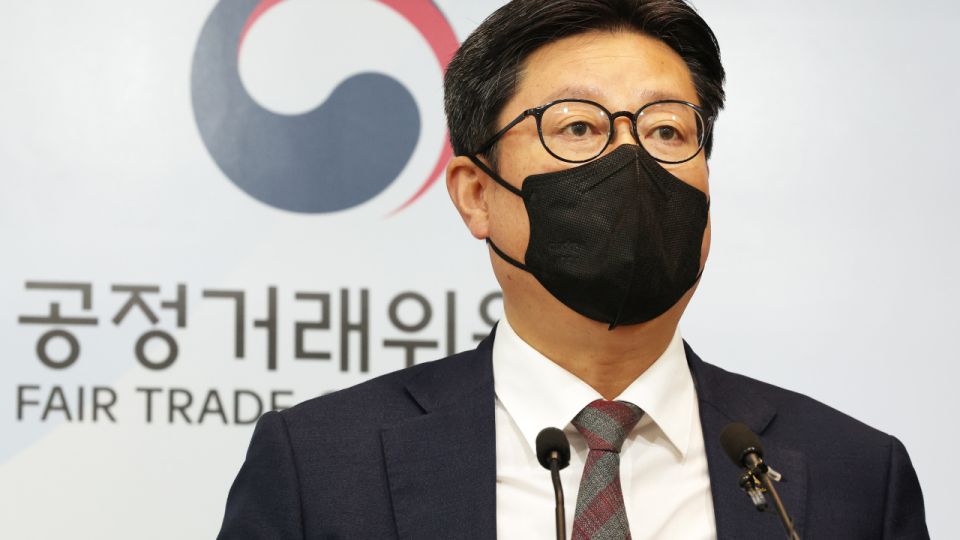April 28, 2022
SEOUL – South Korean chip-and-telecom giant SK has become the nation’s second-largest conglomerate, replacing Hyundai Motor for the first time in 12 years, a local antitrust regulator said Wednesday.
Having accumulated over 291 trillion won ($230 billion) in total assets, SK took the number two spot, largely due to increased assets and sales in its chipmaking arm SK hynix. The semiconductor unit’s acquisition of Intel NAND memory business along with expanding income boosted SK’s overall assets by 20 trillion won. It outpaced auto giant Hyundai Motor, which had 257.84 trillion won in total assets. Samsung remained at the top, while LG and Lotte placed fourth and fifth, respectively.
The Fair Trade Commission also included Dunamu — the operator of the nation’s largest cryptocurrency exchange Upbit — on its list of “large business groups.”
This is the first time that the regulator has classified a cryptocurrency operator as a large business.
The list of large businesses includes 76 business units with total assets over 5 trillion won or more.
Dunamu currently holds 10.8 trillion won in assets and 5.8 trillion won in customer deposits, according to the FTC.
“We considered Dunamu’s customer deposits as the firm’s own assets as they are under the company’s control and Dunamu gains economic benefits from them,” said Kim Jae-shin, the FTC vice chairman.
Those classified as large businesses must disclose information on major intracompany dealings, board decisions, and shareholders.
They are also barred from providing excessive and “unfair” benefits to related parties and are placed under close monitoring.
Other new additions to the list include Krafton, Bosung, KG, Iljin, OK Financial Group, Shinyoung, and Nongshim.
Last year, large businesses from shipping, construction, and IT sectors showed remarkable growth.
Shipping companies, such as Korea’s sea flag carrier HMM Co., SM, and Sinokor Merchant Marine Co., showed rapid growth due to recovery of shipping demands.
For instance, HMM doubled its total assets in just a year to 17.7 trillion won from 8.7 trillion, jumping from being the 48th-biggest conglomerate in 2021 to the 25th spot this year.
Construction companies enhanced growth through active mergers and acquisitions.
Jungheung Construction doubled its total assets as well to 20.3 trillion won from 9.2 trillion, jumping from being the 47th-biggest conglomerate in 2021 to 20th this year.
IT companies such as Kakao and Naver have maintained stable growth since they were deemed as large businesses back in 2016 and 2017, respectively.
Kakao augmented its total assets to 32 trillion won from 19.9 trillion, jumping from being the 18th-biggest conglomerate in 2021 to the 15th biggest this year.
Naver’s total assets increased to 19.2 trillion won from 13.5 trillion, moving up five notches from last year to becoming the 22th-biggest conglomerate this year.
The FTC pointed out that the nation’s top five to top 10 biggest conglomerates are still responsible for 50.5 percent and 65.7 percent of large businesses’ total assets, but the gap is narrowing between large businesses and nonlisted ones.


